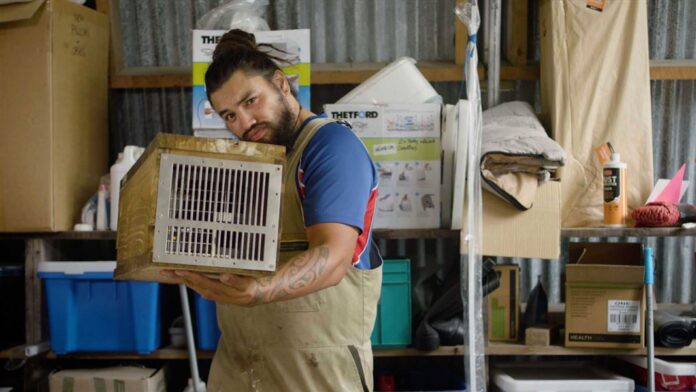Source: Department of Conservation
Date: 14 July 2021 Source: Office of the Minister of Conservation
“The work we are funding includes everything from pest control and restoration planting to plant propagation, skill building and education initiatives across Aotearoa New Zealand,” Kiri Allan said.
Examples are a predator control project to create a biodiversity corridor between Lake Rotokare and Omoana in Taranaki, a marae-led project that aims to increase whio and kiwi numbers on the East Coast and a nationwide education and training programme to help hunters contribute to conservation outcomes.
“These things show that our conservation effort is much broader than just getting rid of pests and protecting threatened species.”
The 579 full-time equivalent roles will be funded through a $34 million allocation from the Jobs for Nature Community and Private Land Biodiversity funds administered by the Department of Conservation.
“This is another very significant investment in both our taonga and the people who call this place home.
“It is also about meaningful work, training, and education, a wider understanding of how to make a difference in our own backyard and a helping hand towards a more sustainable environmental and economic future.”
The funding announced today supports 49 projects selected after a rigorous assessment process from more than 400 applications.
“It is always disappointing to have to say no to people who have the passion and drive to make a difference, but this speaks to the scale of the effort New Zealanders are making and the size of the task still in front of us.
“The successful projects will take us where we want to go fastest and most importantly, by putting people into jobs for nature,” Kiri Allan said.
Some of the projects being funded are
National Hunter Education and Training Scheme
$700,000/14FTE
Deliver a nationwide online and practical education and training for New Zealand’s hunting community. This will result in educated hunters who will contribute to conservation outcomes. The NZ Game Animal Council will deliver the online course, with the New Zealand Deerstalkers Association delivering the classroom and practical training.
Funding will help accelerate the development and delivery of the online training programme. The practical programme will be able to continue beyond the funded programme with the instructors trained and ready to deliver courses throughout the country and enable more hunters to receive the training.
Whakatere te Korowai o Awarua (Accelerate the Cloak of Awarua)
$686,000/ 14FTE
50 years ago, Motupuhue (Bluff Hill) was sheep pasture with one area of remnant podocarp forest which has been restored through predator and weed control and native replanting by the Bluff Hill Motupohue Environment Trust.
The funding will enable a scaling up of the work and complement the Te Puni Kōkiri funded native plant nursey – Te Korowai Whakahou – that is set to begin operating.
Whakaora Te Taiao
$958,500/9FTE
Predator control programme over three Māori land blocks within the Kapenga and Waikaruru wetlands and Tumunui native forest in Bay of Plenty. The project will employ whanau as Hunga Tiaki, to reconnect with their environment and restore the mauri of wai, whenua and whakapapa.
Restoration of Avoca Valley
$650,000/10FTE
Restore a lowland dry podocarp hardwood forest to the Avoca Valley on the Port Hills through protection of existing forest remnants and native planting. The funding will enable the planting of 45,000 trees as part of a wider plan to plant 87,000 trees over 33ha of the valley. The funding enables a significant acceleration of this 20 to 50 year planting project. The Summit Road Society Inc is working with the neighbouring cattle farm to create a 1ha ecological corridor across the property.
The gateway to the Matemateonga range
$606,000/8FTE
Predator control to create a biodiversity corridor between Lake Rotokare and Omoana. The Eight Hundred Trust aims to reduce pest numbers to a low level to enable the kiwi population to grow and future translocations to occur. Training will be on the job upskilling in conservation skills including species identification, trapping and tree planting. The Trust will seek to employ a candidate from either Ngāti Ruanui or Ngā Rauru
Eastern Whio Link
$700,000/10FTE
A marae-led project that aims to increase whio and kiwi to carrying capacity on the East Coast by expanding the predator control work and enhancing the connection of mana whenua to the landscape. Currently 30 km of river margin is trapped for stoats, the funding enables an expansion to 55 km of whio habitat under protection. Local businesses and Eastern Institution of Technology Gisborne and Tairawhiti Enviro School have adopted existing trap lines and the aim is to increase wider community involvement.
Background information
Full list of successful applicants.
Contact
For media enquiries contact:
Email: media@doc.govt.nz



